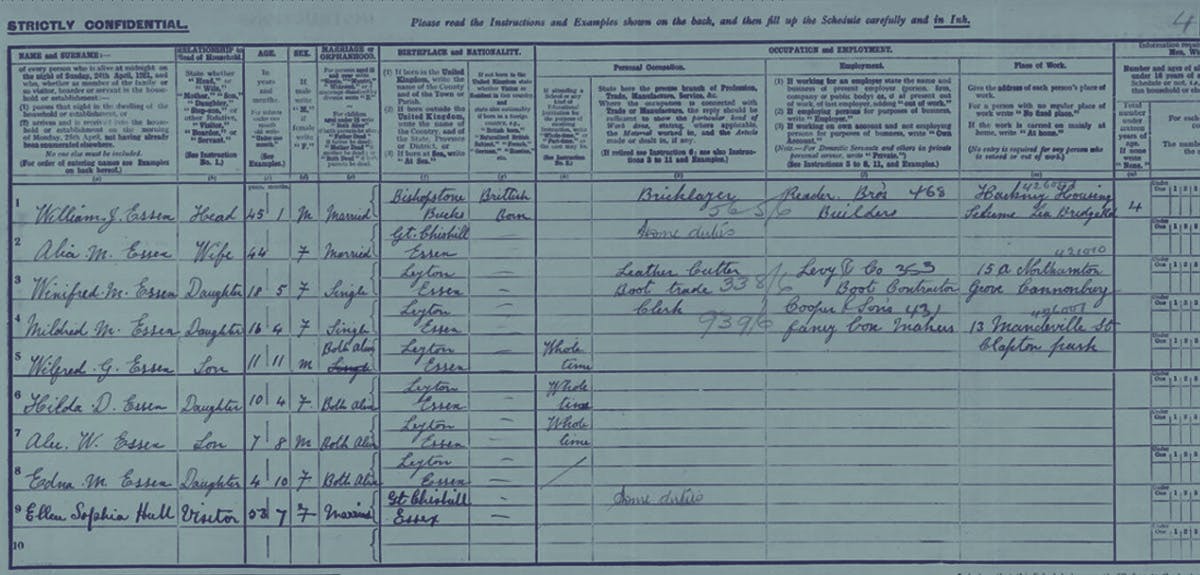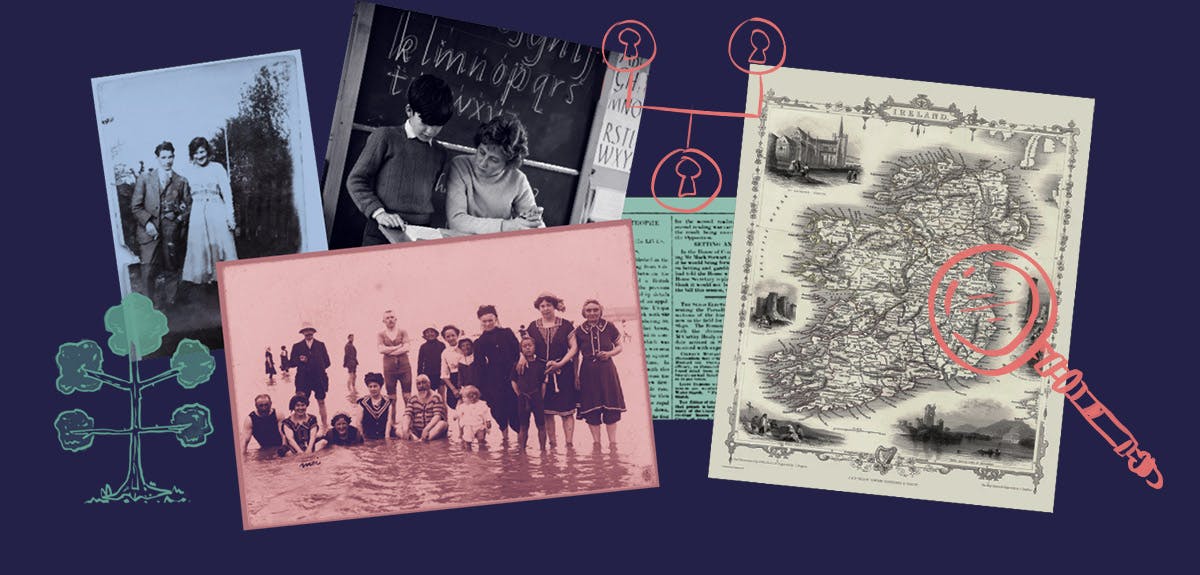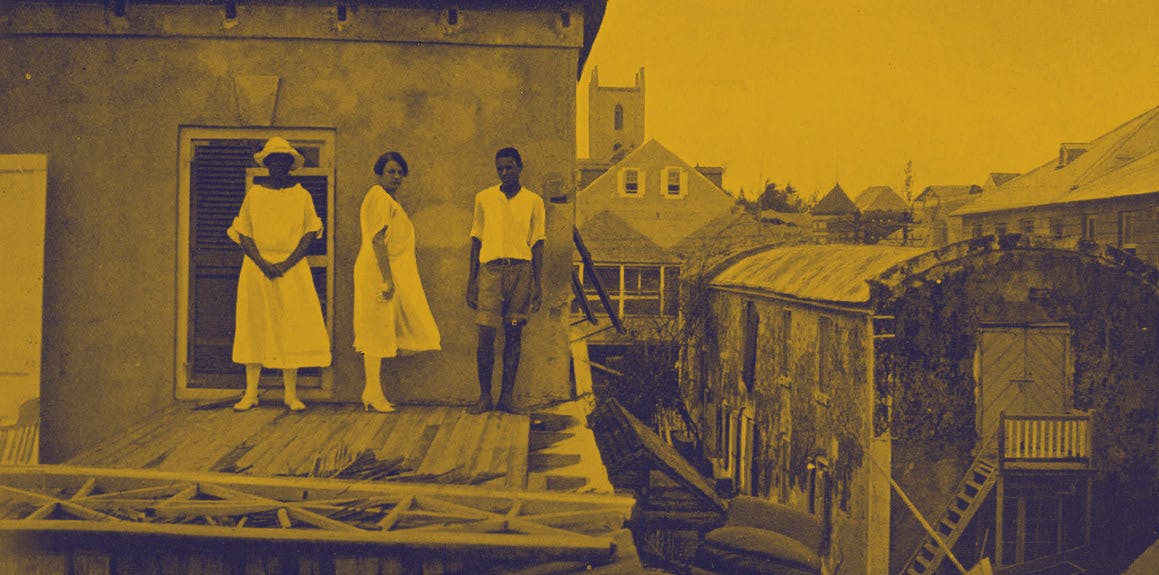Disappearing British surnames: is your last name about to go extinct?
4-5 minute read
By Ellie Ayton | February 2, 2024
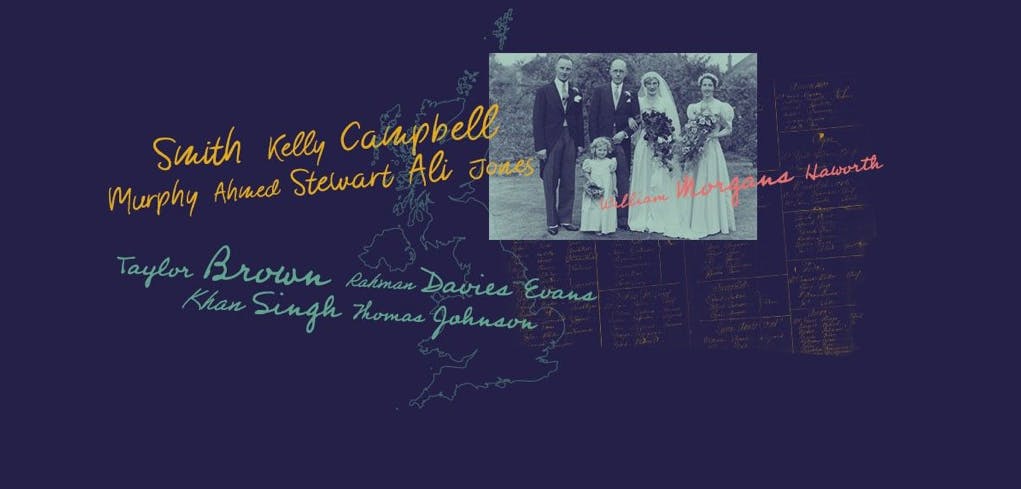
If you don't have one of the most common English surnames, your last name may just be on the verge of extinction... We've delved into our record collection to explore what key surname trends mean for you and for family historians.
Do you know how unique your surname is? Read on for all the must-know information about British surname trends, from the earliest last names in the 11th century to the modern day.
Way back in 1836, the law in England and Wales changed. Every birth, marriage and death had to be recorded with the General Register Office.
Fast forward to today, birth, marriage and death records are the bread and butter of family historians. They're a great starting point for beginners, and can be the key to unlocking elusive family secrets in your family tree. Family history wouldn’t be the same without them.
A peek at the last names from the England and Wales Births 1837-2006 Index has revealed some incredible trends. Crucially, we found that distinct names have been on the rise over the last century. In fact, the number of different surnames recorded has increased sharply since the 1980s.
But while some new surnames make an appearance, it’s only natural for others to fall out of the records, due to both individual circumstances and wider social trends.
For a comprehensive rundown of all things surname-related, from the history of family names to the origin of your very own name, head over to our English surnames guide.
Here are the most common English and Welsh surnames...
Is your last name top of the list? The top 10 surnames have been relatively stable over the last 170 years.
Smith, Jones and Williams consistently make up the top three. Taylor, Brown, Davies, Evans, Thomas, and Johnson also make an appearance in the rankings, with Ali entering the list in 2006.
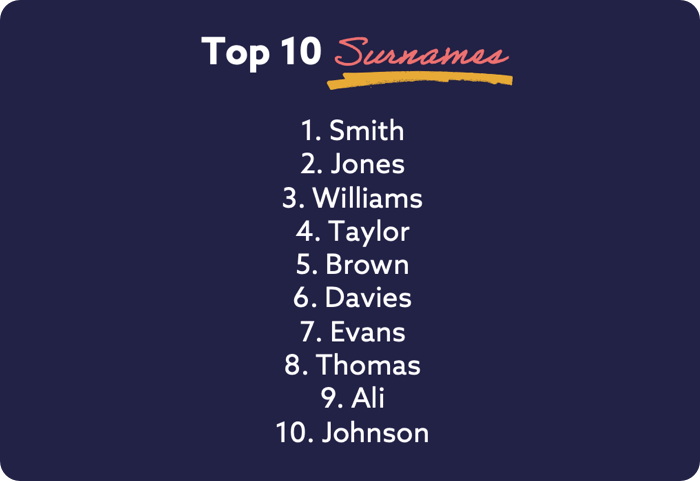
The number of births with a surname in the top 100 per year was relatively constant until the early 1940s, and that’s declined slowly over the last few decades.
These surnames are becoming extinct
The rare names dropping out of the records, and often at an alarming rate, are not as unusual as you might think.
William peaked around 1890 with around 1,200 births, and then almost disappeared. As of 2006, only around 25 people were born with the name.
Morgans saw a steadier decline. There were around 400 people born with the name Morgans in the 1890s, and that number slowly dropped each year. By 2006, there were only about 50 Morganses registered in England and Wales.
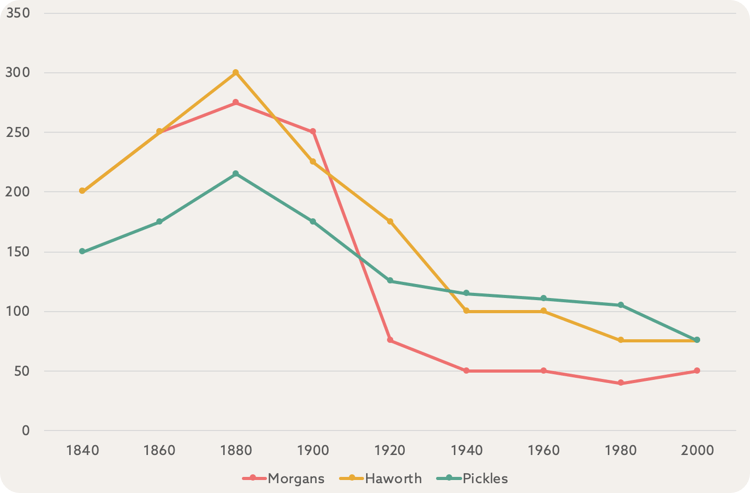
Haworth had its heyday in the late 1870s, before seeing a steady decline to under 100 births in 2006. Another on the brink of extinction is Pickles. The height of its popularity was between 1860 and 1920, but by 2006, barely 75 people were born a Pickles.
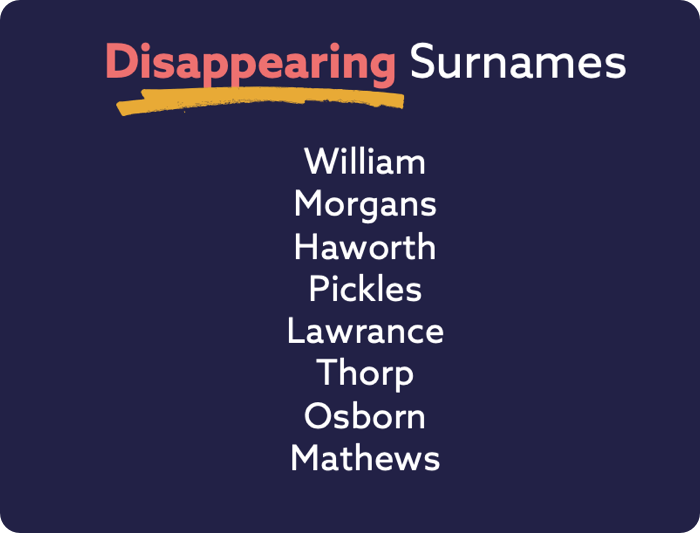
Other surnames which are becoming more uncommon each year are Osborn, Thorp, Mathews, and Lawrance. It’s possible that over the next few decades, these surnames could become extinct in England and Wales altogether.
The surnames rising in popularity
Historical trends go both ways. Could your surname be on the up?
Our records reveal surnames such as Kelly, Murphy, Campbell and Stewart are all seeing a resurgence, which a drastic incline in births recorded with these names.

Actor Cillian Murphy, known for his role in Peaky Blinders.
(Image credit: Tim Cornbill, CC BY-SA 2.0, via Wikimedia Commons)
And as of the 1920s, surnames such as Khan and Ahmed reveal the increasingly rich diversity in the population of England and Wales.
British surnames: your FAQs
What is the oldest British surname?
The Normans introduced surnames to England after their invasion in 1066. Although we have little in terms of written sources from this early period, the surname 'Hatt' was found in a Norman transcript from Cambridgeshire.
Another very early surname was O'Clery (spelled Ó Cléirigh), which is thought to have been recorded in County Galway as early as the 10th century.
What are the 7 types of English surnames?
The seven different types of surnames found in Britain are:
- Patronymic/matronymic names, which derive from parents' forenames, eg. Davidson ('son of David')
- Occupational surnames, like Carpenter
- Characteristic names, which came from nicknames like Swift
- Place surnames, for example, Hampshire
- Geographic names - examples include Wood and Hill
- Estate surnames, deriving from a person's land.
- Patronage names, like Kirkpatrick
What is a typical Scottish surname?
Some of the most popular Scottish surnames are Smith, Brown and Wilson. You can learn more about Scottish names and their history by exploring our vast collection of Scottish records.
Could your surname make a comeback?
While there aren’t any clear signs of surnames disappearing and reappearing, two did stand out. Both David and Kelley had lulls in recorded births between 1900 and 1960, before seeing peaks in 1970.

English singer Craig David, whose surname has seen a recent resurgence.
While Kelley declined once more, David is now on the up.
Whether you're a Smith or an oh-so-rare Sallow, discover how rare your surname is with Findmypast.
Do you have a Scottish, Welsh or Irish name? You can also learn more about names of Scottish origin or your Irish surname, as well as the history behind the most common Welsh surnames.
What exciting discoveries have you made while building your family tree? Whatever stories you've uncovered, we'd love to hear them. You can now get in touch and tell us directly, using this handy form.

